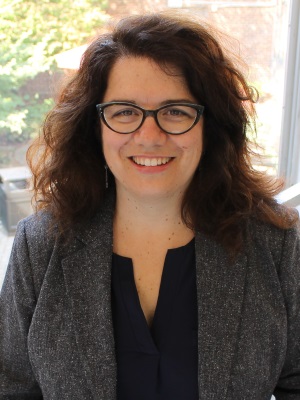Personal health outcomes can vary significantly based on the environmental conditions to which individuals are exposed each day. These factors, known as social and behavioral determinants of health, can include the physical environment, educational institutions/opportunities, economic surroundings, demographics and the social support networks that connect individuals to their communities. Wayne State University is committed to understanding and addressing these factors as part of its commitment to community health and well-being.
A campuswide initiative, the Provost's Social & Behavioral Determinants of Health (SBDH) Steering Committee at Wayne State University supports the exploration of these important issues in order to expand social and behavioral knowledge and use strategies that improve the health and well-being of individuals, families and communities. Each year, junior faculty and graduate students across a range of disciplines are invited to request SBDH funding for their research project proposals.
“Systematic research has emerged on disparities in health outcomes. It is already abundantly clear that under-represented minorities and communities of color experience worse health than majority groups, which are connected to these social determinants,” said Mark Greenwald, professor and associate chair for research and a member of the steering committee. “To rectify these health inequities, systematic research that cuts across disciplines is needed. This topic is highly relevant to Wayne State’s mission and the urban community we serve.”
This year, the SBDH has selected five research projects to fund. The support of $5,000 for each award will last for a year. This year’s ready-to-launch projects, developed by Wayne State University graduate students, focus on important topics in psychology, social work, public health and business management.
“Importantly, by focusing this year’s awards to doctoral trainees supervised by faculty mentors, we aim to generate broader interest across campus and our community, particularly among the next generation of researchers,” said Greenwald.
This year’s awardees are:

Daniel Mulligan, doctoral student in clinical psychology and a graduate teaching assistant in the College of Liberal Arts and Sciences, for his project, “New approaches to socioeconomic stratification and health.”

Elizabeth Milad, doctoral student in social-personality psychology in the College of Liberal Arts and Sciences, for her project, “A complex systems approach to identifying risk factors for drinking decision-making among Black college students.”

Laura Sutherland, doctoral student in the Social Work and Anthropology program in the School of Social Work, for her project, “How art activities influence social relations of persons with dementia: an ethnographic exploration.”

Najma Akhther, doctoral candidate and graduate and research teaching assistant for the Department of Communication in the College of Fine, Performing and Communication Arts and Sciences, for her project, “Effect of peer mental illness recovery narratives on reducing stigma and promoting professional help-seeking behavior among minority communities.”

Joseph Yestrepsky, doctoral candidate in the Mike Ilitch School of Business, for his project, “How employee’s attributions shape the relationship between organizational practices and their mental health.”
All of these projects are funded by the Office of the Provost.
“The goal of this campuswide SBDH research awards initiative is to stimulate innovative and scientifically sound pilot research projects, ranging from person-level to societal-level and covering both quantitative and qualitative approaches,” said Greenwald. “Projects are aimed at potentially impactful contributions, with the expectation that they will lead to a larger-scale application and extramural funding.”
By Katheryn Kutil
